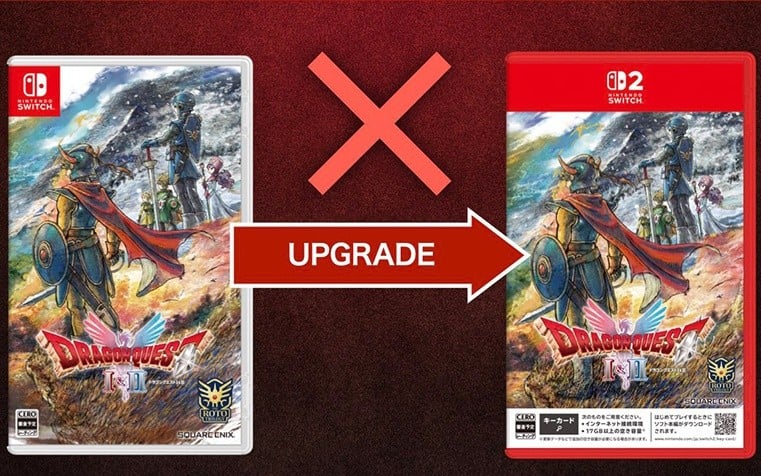As the gaming community eagerly anticipates the launch of Square Enix’s highly praised Dragon Quest I & II HD-2D Remake, set to debut on the Nintendo Switch and anticipated Switch 2 this October, an important announcement has stirred discussions among fans and potential buyers alike. According to a recent official FAQ, there will be no upgrade path available for players wishing to transition from the Switch version to the upgraded Switch 2 version. This has significant implications for gamers deciding which version to purchase, as they will have to make a firm choice regarding their platform before the release.
The No Upgrade Policy Explained
In their FAQ, Square Enix explicitly stated:
Can copies of the Switch version of DRAGON QUEST I & II HD-2D Remake be upgraded to the Switch 2 version?
No, there is no upgrade path currently available or planned. Please buy your copy for whichever system you would like to play it on.
This statement clarifies any assumptions that players might have had about a potential cross-generation upgrade similar to policies seen in other gaming franchises. For instance, titles within the PlayStation ecosystem frequently offer upgrade paths for digital titles, indicating a market expectation for such transitions. However, it appears that Square Enix is adopting a more traditional approach, requiring players to purchase separate versions for different platforms.
DLC Compatibility and Game-Key Cards
Moreover, Square Enix has elaborated on how downloadable content (DLC) will operate across the two versions. Codes intended for the Switch version of the game cannot be redeemed for the Switch 2 version, and vice versa. This means that those who purchase additional content will need to buy it corresponding to their specific platform, reinforcing the delineation between the two systems. Moreover, a ‘Game-Key Card’ version for the Switch 2 has also been confirmed, which indicates that physical media will continue to play a significant role in gaming ecosystems.
Consumer Reactions and Community Sentiment
The community’s reaction to this announcement has been mixed. Many gamers express frustration at the idea of needing to purchase the same game twice if they wish to play it on both systems. A user on the game’s official Discord remarked, “It’s disappointing! I was really looking forward to playing it on both consoles, but now I feel like I’ll have to pick one.” This sentiment reflects a broader concern among gamers about digital ownership and portability rights in today’s gaming landscape.
On the other hand, some players argue that this could lead to better performance optimization for each platform, as developers can focus on tailoring the game experience for each system without worrying about backward compatibility issues. As one developer pointed out in a recent tweet, “Different hardware means different capabilities, and sometimes that necessitates a clean break from the past.”
Market Implications and Future Considerations
This decision by Square Enix may have broader implications in the gaming market. As companies increasingly adopt different approaches toward platform transitions, it could affect consumer behavior in future purchases. According to a recent Statista report, the gaming console market is projected to grow rapidly, and players might hesitate to invest if they believe they will need to make duplicate purchases for games in the future.
Additionally, this announcement raises questions about how other developers and publishers will handle similar situations. Will they follow suit and adopt a strict policy against cross-generational upgrades? Or will they leverage upgrade paths to entice consumers to invest in newer hardware? These decisions could have lasting effects on brand loyalty and consumer trust.
Conclusion
As the launch of the Dragon Quest I & II HD-2D Remake approaches, players will have to weigh their options carefully. With no plans for an upgrade path between the Nintendo Switch and Switch 2 versions, consumers must decide on their preferred platform before purchase. While this approach could lead to more tailored experiences for each console, it also opens up discussions about digital ownership and market strategies. As always, the gaming community remains vigilant, sharing thoughts and strategies as changes unfold.

